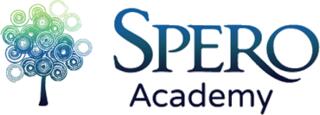
Choosing the right educational setting and path for your child is a big decision no matter what, but the decision has even more implications when you’re raising a child with autism. Not only do you want to pick a school that will give your child a quality education, but you also need to find a school that will be able to meet your child’s unique needs, respect their differences, and accept them for who they are.
It can feel like there’s a lot riding on this decision, and in many ways there is. No decision about which school your child attends is permanent, but the right school can provide your child with the tools, experiences, and knowledge they need to be successful during their school years and well beyond.
As the saying goes, when you’ve met one child with autism, you’ve met one child with autism. The type of school that works for one student with autism might not be the right fit for another student. It’s important to figure out what the right educational home is for your child – and there are a lot of options.
Private schools, public schools, charter schools, and homeschooling all have pros and cons. Taking a closer look at what each educational setting offers will help you start to hone in on which would be the best fit for your child, and will guide you to ultimately choose the right school for your child’s needs.
Public School Autism Programs
Public schools are funded by the government and run by local school districts. They are bound by state and federal education laws, and students are required to meet academic standards defined by the state. Public schools are required by law to provide special education services, individualized education programs (IEPs), 504 plans, and classroom accommodations for students with special needs.
While public schools do make provisions for children with autism and other special needs, it tends to be a one-size-fits-all approach. Public schools just don’t have the resources to customize lesson plans to each student’s individual needs, or to hire specialists to provide crucial therapies for autism.
The quality of services offered and breadth of resources available varies from school to school, even within the same school district. Before enrolling your child in public school, meet with teachers and school officials to familiarize yourself with the program and learn what accommodations would – or could – be made for your child’s needs.
Charter Schools for Autism
A charter school receives government funding, but is operated by an independent group of parents, teachers, or community members. Charter schools are free to attend and are held to the same state academic standards as public schools.
It is common for charter schools to have a specialized focus or mission that inspires their formation and informs their educational principles, such as a dedication to the arts or catering to special needs like autism or deafness. A charter school specializing in special education, such as Spero Academy, might be a great fit for your child with autism.
Spero Academy is a K-6 elementary charter school in Northeast Minneapolis that is designed to help students with disabilities achieve a high standard of academic and personal excellence through individualized educational programs, integrated therapies, and a responsive learning environment. Autism therapies are woven into Spero’s everyday classroom environment, ensuring that your child will receive the intensive early intervention they need to excel socially, emotionally, and behaviorally.
(Fun fact: Minnesota was the first state to write charter schools into law, back in 1991. As of 2015, there are over 165 charter schools operating in Minnesota, with 41,000 in attendance.)
Private School For Students WIth Special Needs
Private schools are entirely independent from government oversight. They receive no government funding and are not required to follow any state or federal academic standards. Private school teachers are not required to be state-certified. Private schools charge tuition and require students to apply in order to attend.
Depending on the school, private school could either be a great setting for your child, or a very poor one. Private schools are not required to provide special education programs, IEPs, or 504 plans. They are also not required to screen students for potential disabilities. Whether or not a private school is a good fit for your child will depend on whether they provide any of these services, and what the program looks like if they do.
Homeschooling a Child With Autism
Homeschooling your child is always an option, and for many families it may be the right option. With homeschooling, your child’s education is entirely up to you. That gives you a lot of freedom, but it also means that you’re responsible for not only providing them with a quality education, but also for coordinating the autism interventions and therapies they need to support their development. It’s a big job, and it’s not the job for everyone. We recommend doing extensive research before committing to homeschooling. It’s not all cozy mornings and lessons-in-jammies.
If you’re interested in learning more about Spero Academy’s program or philosophy, please contact us to schedule a tour. We’d love to meet you and your child and discuss what makes attending school at Spero so special.

